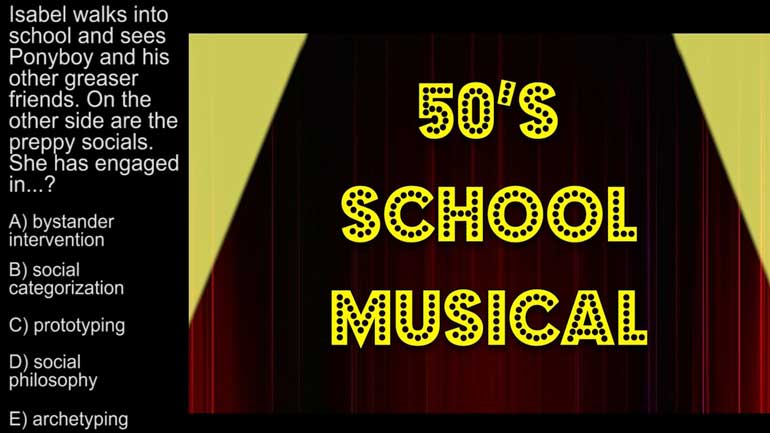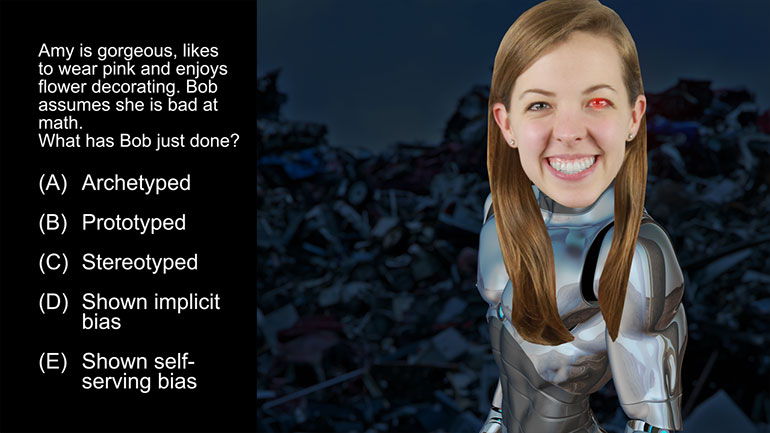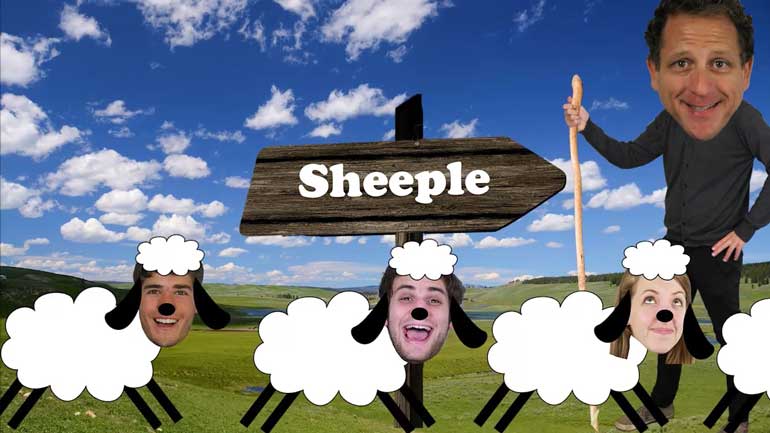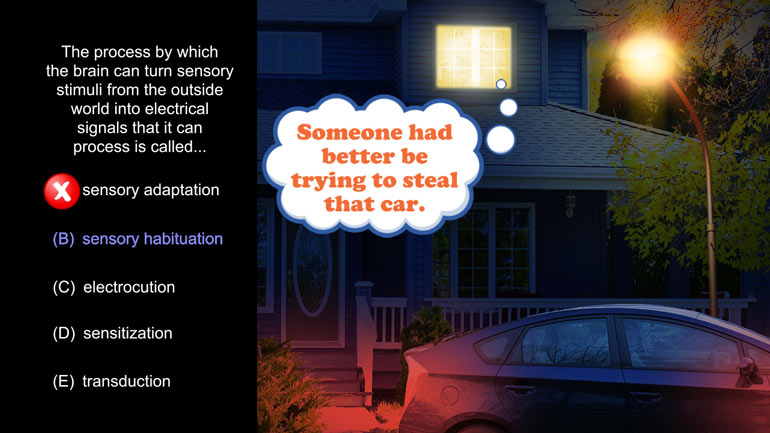ShmoopTube
Where Monty Python meets your 10th grade teacher.
Search Thousands of Shmoop Videos
Interpersonal Perception Videos 2 videos
AP Psychology 2.3 Social Psychology. What has Isabel engaged in?
AP Psychology 3.3 Social Psychology. What has Bob just done?
AP Psychology 3.3 Social Psychology 2 Views
Share It!
Description:
AP Psychology 3.3 Social Psychology. What has Bob just done?
Transcript
- 00:03
here's your shmoop du jour brought to you by the color pink it really messes [Flamingo's outside caravans]
- 00:08
with a male flamingos sense of masculinity alright Amy is gorgeous like
- 00:12
to wear pink and enjoys flower decorating Bob assumes she's bad at math
- 00:16
what is Bob just done and here the potential answers
- 00:20
well Bob's assuming Amy is bad at math little
Full Transcript
- 00:24
bit Bob know however that Amy loves creating new shades of pink using [Math beside shades of pink]
- 00:27
sophisticated hex color-coded equation enjoys decorating flowers and complex
- 00:32
patterns based on the Fibonacci sequence and it's only gorgeous because she's
- 00:36
actually an Android is programmed herself to look that way take that Bob [Amy dressed as a robot]
- 00:40
okay so what is Bob done here well he hasn't shown implicit bias per se
- 00:44
because we wager that he's very conscious of his assumption and implicit
- 00:49
biases are defined by the fact that they're entirely subconscious [Man being hypnotized]
- 00:52
assumptions that inform the way we perceive and understand people and the
- 00:56
things around us that's quite world we're describing a self-serving biases
- 01:00
when people tend to attribute positive events to their own character but
- 01:04
negative events to external factors seeing is how Bob isn't talking about
- 01:08
himself at all here well this won't fit either so if you ask us Bob should be
- 01:12
talking about himself a bit more and he should be saying I'm a big dumb doofus [Bob wearing i'm a big dumb doofus t-shirt]
- 01:16
who thinks the way you dress has anything to do with your mathematical
- 01:19
ability now archetype is getting closer to what we're after but still not quite
- 01:24
there an archetype is a union term you'll believe that there are several
- 01:28
characters or archetypes who are collectively familiar to all of us like
- 01:33
some other the child the crazy uncle and the trickster all nothing here about the
- 01:38
mathematically challenged flower lover though prototyping is also both but no [Man smoking cigar]
- 01:43
Freudian cigar a prototype can be thought of as the best example of
- 01:47
whatever it is we're talking about if we say head you might think cat well that [Flamingo stood with a dog and cat]
- 01:52
cat would be your prototypical pet to which all other pets would be compared
- 01:56
what Bob is really doing here is stereotyping this is the often [Bob working on a radio]
- 02:01
inaccurate way we judge people they only on their inclusion in with certain
- 02:05
groups they're a typing follow social categorization in the case of Bob and
- 02:09
Amy Bob is categorized Amy into a certain group of people before making me [Bob pushing Amy into a basket]
- 02:12
some and about her weakness in math of course
- 02:15
English shouldn't feel too bad because she knows she's good at math [Amy roars as a robot]
Related Videos
AP Psychology 2.2 Social Psychology. Which of the following was an independent variable manipulated in Asch's research?
AP Psychology 1.1 Social Psychology. Which of the following best describes social psychology?
AP Psychology 1.1 Personality. According to Freud, these three parts of personality are constantly in conflict.
AP Psychology 1.1 Sensation and Perception. The process by which the brain can turn sensory stimuli from the outside world into electrical signals...
AP Psychology 1.1 States of Consciousness. Who conducted research on REM sleep deprivations?






